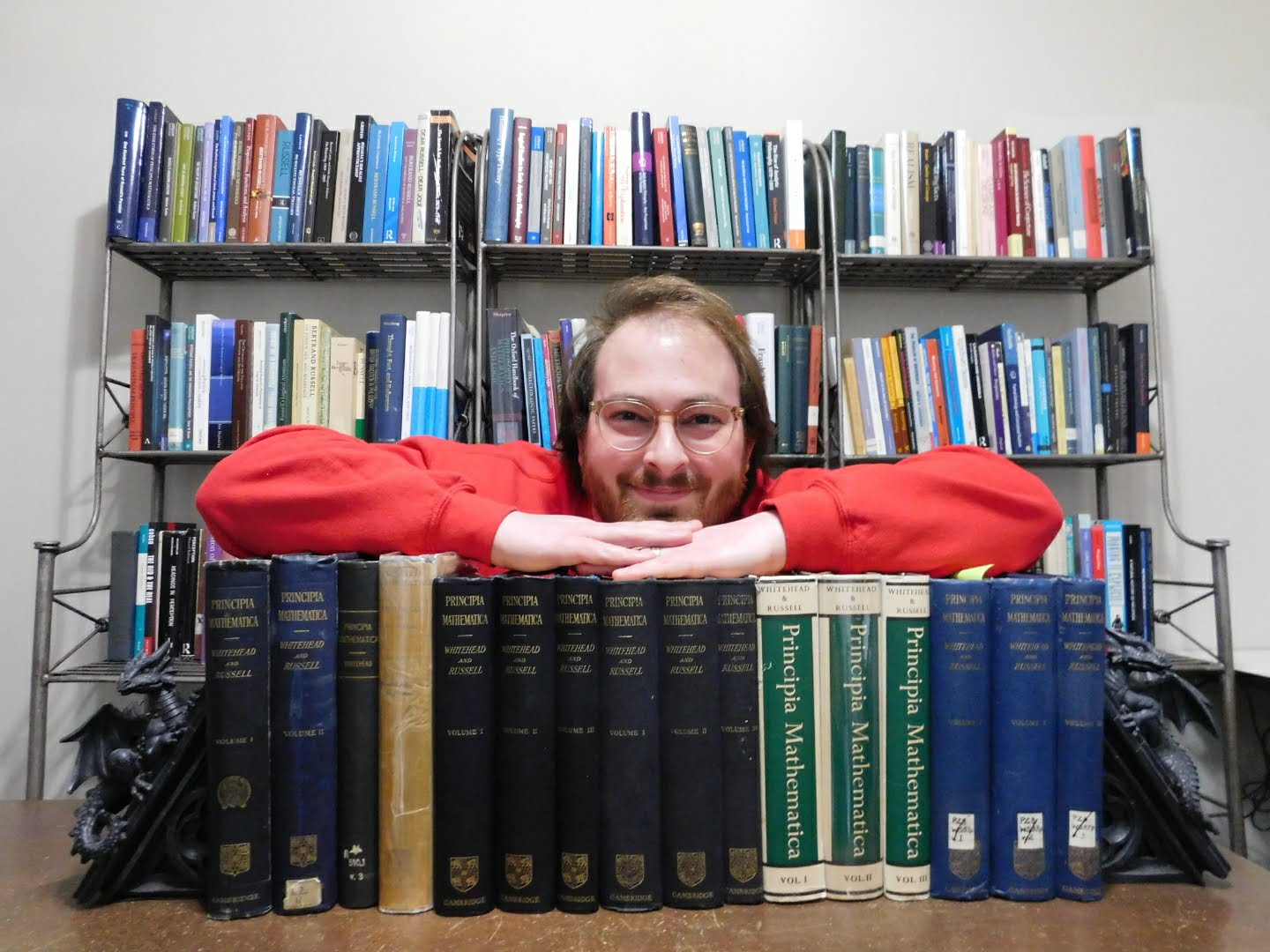Teaching
Teaching Experience
Western Kentucky University- Philosophy of Language (x1)
- Philosophy of Mind (x1)
- Metaphysics and Epistemology (x1)
- Symbolic Logic (x1)
- Truth and Relativism (x2)
University of Iowa- Symbolic Logic (x1)
- Introduction to Philosophy (x3)
- Meaning of Life (x3) flipped online course
- Principles of Reasoning (x8)
- Symbolic Logic (x1)
- Introduction to Philosophy (x3)
- Meaning of Life (x3) flipped online course
- Principles of Reasoning (x8)
In 2016, my logic teaching won an Outstanding Teaching Award from the University of Iowa's Council on Teaching.
Teaching Evaluations
Teaching Evaluations Summary for the fall 2018, spring 2019, and fall 2019 semesters. Evaluations for each course are included below. Spring 2020 is omitted because I was on leave for part of the semester.
- Fall 2019 (Course 1, Course 2)
- Spring 2019 (Course 1, Course 2, Course 3)
- Fall 2018 (Course 1, Course 2)
- Spring 2016 (Course 1)
- Fall 2015 (Course 1, Course 2)
Teaching Philosophy
My organizing teaching principle, which informs my course design and assessment, is Russell's claim that philosophy essentially consists in criticism: in addition to an understanding of the course content, I want students to take away from my classes the ability to argue analytically, and to do it well. Analytical argumentation is a lifelong skill that will be useful in many walks of life, even if one does not pursue philosophy as a major or in graduate study. To that end, I stress multiple short writing assignments in introductory courses, including logic courses, and I structure my courses around the revision process for longer papers, and even for some shorter assignments. Expectations for complexity and creativity in writing assignments appropriately increase with the course level and students' background.
Inside the classroom, I aim in each meeting to have students undergo an experience familiar to most of Socrates' philosophical interlocutors, an experience that I call the five stages of philosophical grief:
- denial, of the arguments' premises in an easy, confident manner
- anger, at the seeming word-mincing at play in setting up an argument
- bargaining, with the conclusion by trying to minimize what it implies
- depression, or aporia, in realizing that the argument may be inescapable
- acceptance, that what appeared simple and easy to understand is not so
Outside the classroom, I strive to make philosophical material, and myself, as accessible as possible, holding all-day office hours during exam week, posting instructor notes on course websites, and even recording the course readings as a public-domain audio book for students who want to hear philosophy rather than read it. Everybody should get the chance to experience the rewards that philosophy can offer, and they certainly will in my class.
